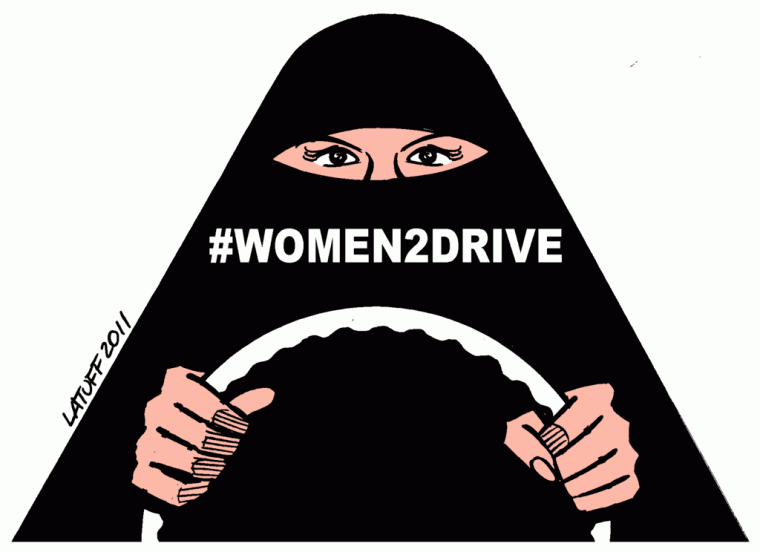Why is Saudi Arabia Jailing Female Driving Activists?
 The magical date of Jun. 24 is almost here. What makes it so special, you ask? Why, that’s the date when Saudi Arabian women can officially get behind the wheel of a car in their own country. That sounds very exciting, until you realize that the government is jailing and ostracizing many of the women who fought so hard to earn their rights to drive.
The magical date of Jun. 24 is almost here. What makes it so special, you ask? Why, that’s the date when Saudi Arabian women can officially get behind the wheel of a car in their own country. That sounds very exciting, until you realize that the government is jailing and ostracizing many of the women who fought so hard to earn their rights to drive.
In a crackdown on dissent in the country, Saudi Arabia detained several women’s rights activists last month. Authorities arrested seven of them on the eve of Ramadan, with the number in jail climbing to 17 in the days that followed. As of yesterday, nine of the activists are still in prison, with the government of Saudi Arabia claiming that they aided the enemies of the state, according to Bloomberg. The state-controlled Saudi Press Agency is sharing the story far and wide that these women are not to be trusted, saying those arrested “worked together in an organized manner to violate religious and national values,” and had “suspicious communication with foreign agencies.”
It seems odd that Saudi Arabia would jail the women that succeeded in winning women the right to drive, especially with Crown Prince Mohammed Bin Salman going on news programs around the world to talk about how he wants to give women more rights in an effort to modernize the country. Vivian Nereim of Bloomberg reports that it’s part of a larger crackdown on anyone that speaks out against the Crown Prince or his government. Authorities have been rounding up naysayers since September, including businessmen, clerics, intellectuals, and both liberal and conservative activists.
The current theory as to why women driving activists were swept up in the crackdown is that the government is unhappy that many of them moved on to the issue of guardianship, called “modern slavery” by some outspoken Saudis. Every woman in the country needs a male guardian’s permission to do simple tasks like rent an apartment or get a job. While the new proclamation allowing women to drive doesn’t require a woman to gain her male guardian’s permission to get a driver’s license, it’s rare for a woman to be able to make a step in that country without a male’s approval.
One of the activists jailed, Loujain al Hathloul, was one of the many warned by the Saudi government to stay silent after the ban ended. She stopped tweeting for a while, but then resumed, discussing the next steps for women’s civil rights in her country. Saudi Arabian officials then had her arrested in the United Arab Emirates and put on a flight to Riyadh, where they held and questioned her for three days in a prison usually reserved for Islamic militants. She won release, but her family is unable to leave the country. In a recent sweep, al Hathloul was picked up again and remains in custody.
Samah Hadid, Amnesty International’s Middle East campaigns director, stated that “If Crown Prince Mohammad bin Salman truly believes himself to be a reformer, he should free the women’s rights activists, and include activists and civil society members in Saudi Arabia’s reform process.”
Yes, women will be allowed to drive in Saudi Arabia next week, and yes, it is exciting. But the work for women’s rights in the country is far from over.* While the Crown Prince and the royal family will be all over the western press talking about the great progress they have achieved, it’s on all of us to watch closely and hold them accountable for the injustice still going on behind the curtain.
*Heck, you can argue that the fight isn’t even over in most of the world.
News Sources: Amnesty International, Bloomberg (article one and article two)

The News Wheel is a digital auto magazine providing readers with a fresh perspective on the latest car news. We’re located in the heart of America (Dayton, Ohio) and our goal is to deliver an entertaining and informative perspective on what’s trending in the automotive world. See more articles from The News Wheel.

